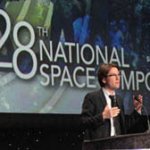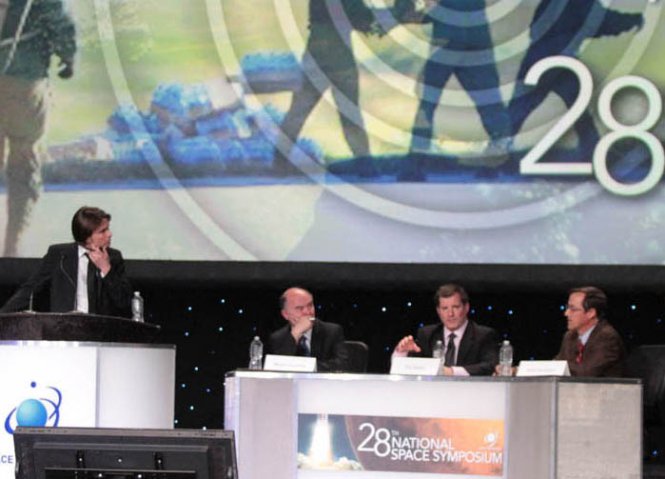Space Foundation News
Societal Benefits Panel Discusses Emerging Nations’ Needs
Written by: developer
 The Tuesday, April 17, National Space Symposium panel, Societal Benefits – Space Applications in Emerging Regions, presented in association with Euroconsult, discussed how space assets can help emerging nations deal with practical, societal issues. Panel Moderator Steve Bochinger, director of institutional affairs, Euroconsult, and managing director, Euroconsult North America, started by explaining that there is a sharply increasing trend in the number of nations with active space programs. Panelists’ comments included:
The Tuesday, April 17, National Space Symposium panel, Societal Benefits – Space Applications in Emerging Regions, presented in association with Euroconsult, discussed how space assets can help emerging nations deal with practical, societal issues. Panel Moderator Steve Bochinger, director of institutional affairs, Euroconsult, and managing director, Euroconsult North America, started by explaining that there is a sharply increasing trend in the number of nations with active space programs. Panelists’ comments included:
Sir Martin Sweeting, group executive chairman, Surrey Satellite Technology: Developed nations are increasingly realizing that space is essential to their needs, and that small satellites can enable developing nations to benefit from space, particularly with remote sensing and, more and more, countries with emerging space programs are purchasing satellites. Skills in disaster monitoring must be available locally to interpret data. Furthermore, temporal resolution is needed in addition to spatial and spectral resolution. We may need a capacity-based model for remote sensing, similar to the established model in the satellite communications industry.
Tim Deaver, vice president – market development government solutions, SES World Skies: The planned O3b satellite constellation can provide low-latency Internet services to remote areas.
David Hartshorn, secretary general, Global VSAT Forum: Markets used to be closed in developing countries, but now, about 14 years later, the satellite industry is blossoming in a more deregulated market environment. There is an emerging issue in signal interference, however, that needs to be mitigated by certification, training and ground station testing. Spectrum rights and interference are a critical issue. Ka-band satellites are a game-changer in the value proposition for satellite services.
See photos here.
Pictured: Moderator Steve Bochinger



